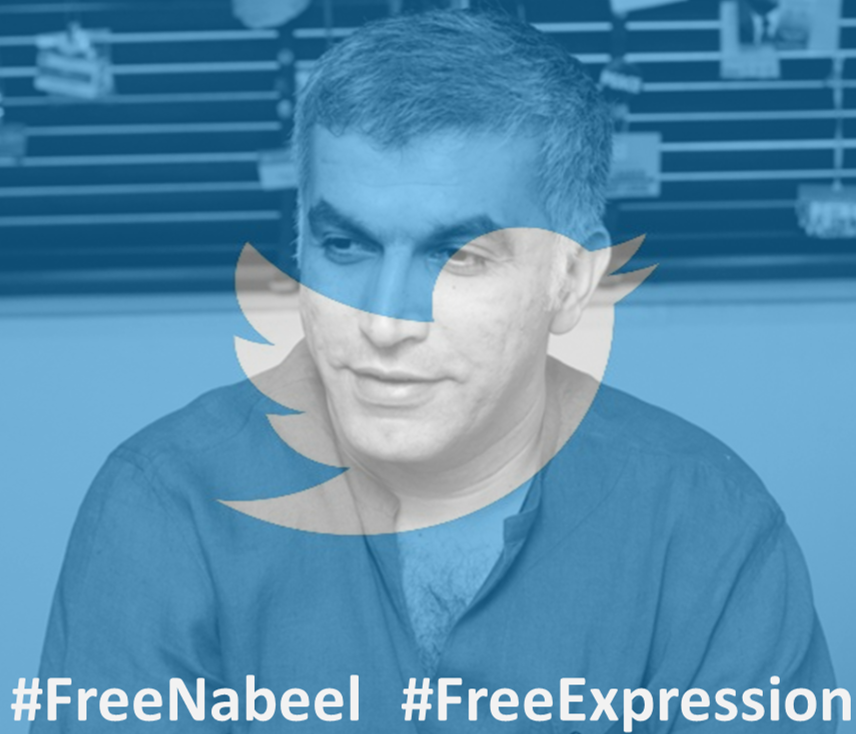The Bahraini government has a tradition of “using Western holidays as an opportunity to carry out a wide range of political and human rights abuses.” Such is the case with Bahraini human rights defender Nabeel Rajab’s final appeals hearing that could decide whether he will remain in prison until 2023. His hearing is scheduled for New Year’s Eve – 31 December; a strategic decision by the Bahraini government knowing the international community will be distracted.
Nabeel’s approaching hearing is his final for his trial on free expression charges concerning tweets and re-tweets criticizing the war in Yemen and torture in Bahrain’s notorious Jau Prison. Officially, Nabeel has been charged with political crimes of “spreading false rumors in time of war,” “insulting public authorities,” and “insulting a foreign country.” The charges fall under Bahrain’s highly restrictive cybercrimes law which authorities have used to great effect to criminalize forms of free speech that are seen as being critical of particular policies, the government, or the ruling family.
These are not the first set of charges leveled against Nabeel on free expression grounds. Rather, they are only the most recent and add to a two-year sentence Nabeel received in July 2017. That particular sentence concerned television interviews he gave in which he discussed restrictions on expression and the press in Bahrain.
Beyond these two free expression charges, the government maintains a number of other, unspecified charges against Nabeel. Though the details are unclear, officials have threatened to charge him on further free expression-related counts of “spreading false news and statements and malicious rumors that undermine the prestige of the state.” These likely stem from letters published in The New York Times and Le Monde. In both articles, he spoke about Bahrain’s repressive climate and lack of fundamental freedoms, including the right to free expression, the war in Yemen, and the government’s prosecution of activists on spurious cybercrime and state security charges.
The Bahraini government’s concerted effort to silence Nabeel comes despite broad international condemnation of his continued detention on bogus charges. Numerous international actors have called for Nabeel Rajab’s release, including the United States Department of State, which has called several times for his release, the European Parliament, which adopted a resolution condemning escalating repression in Bahrain and calling on the government to unconditionally release Nabeel, and the United Nations High Commissioner for Human Rights, Assistant Secretary-General for Human Rights, and Committee Against Torture.
While Nabeel is among the most prominent activists in Bahrain, his ongoing detention is only part and parcel of a broader effort to clamp down even further on any dissent and criticism in the kingdom. This is evident in Bahrain’s approach to the recent elections for the lower house of parliament, which were held on 24 November 2018, and which were neither free nor fair. While the Bahraini government’s repression goes beyond Nabeel, his case remains a critical marker of how far the government is willing to go to silence peaceful criticism. It is time for Bahrain to do the right thing and release Nabeel and drop all charges against him.





